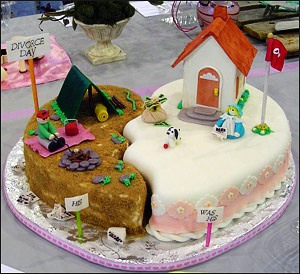When I asked Antonia Ragozzini what the hardest part about getting divorced was for her, without a moment’s hesitation she said, “feeling like a failure.” I think that many of us have felt that way and I think too that it’s an inevitable conclusion when you go into marriage believing it is a lifelong commitment. While there is no denying that your marriage vows are broken, it’s important to separate you from your marriage. Your marriage can fail without you being a failure. You can also accept that perhaps your marriage wasn’t meant to last. It was what it was. Nothing more, nothing less. Here’s Antonia:
I felt that I had failed because I could not get him to stop, I couldn’t get him to choose me. I felt he thought I wasn’t as important as his drugs. And I fought so hard, I felt like a failure. In the chapter in my book about the divorce, I portray how I really felt. We stood in front of the judge the same way we stood at the alter, as husband and wife and we were saying our vows. All of a sudden we’re standing in front of a judge and in front of strangers in a court and we just looked at each other. I just got teary-eyed and said,
“We failed,”
 and it really hurt.
and it really hurt.
I did get over that but it took a long time. I thought I was supposed to get over it by the band aid of getting out there and dating and acting normal before I was ready. Then I just sort of broke down and I had to back track. I had to become confident in myself, come into my own and learn about myself.
I realized it wasn’t my fault, I realized that we didn’t fail and that he was sick. I actually forgave him. That’s when I really realized, that I could get over this and that it wasn’t a failure and that we did try, really hard.
It’s too much energy to hate him anymore. I have to let it go. It was so peaceful for me after I really came to forgive him. Honestly, it took about ten years, but I just couldn’t hold onto the hurt anymore. I couldn’t. I learned more about drugs and I learned more about substance abuse and as I matured, I realized that it is an illness and it wasn’t my fault. It’s all behind me now.
The Divorce Coach Says
Another of my guests, Carlos Phillips, had the same experience as Antonia – he found that once he forgave his ex AND himself, he was able to move on with his life and let go of the animosity that still caught him at moments. When I interviewed T (blogger at Life as a Classroom) she said she saw herself as a failure because she saw herself as not being able to please her husband. However, she came to realize that her marriage wasn’t a failure – she and her husband had served a purpose to each other and when that purpose was served, it was time to move on.
Both of these approaches have helped me. Up until quite recently I blamed myself for our divorce. I didn’t feel I needed to forgive my husband for anything. I felt that the ending of our marriage was my fault because I had chosen very early on not to confront the issues that were problematic to me – I thought they were what they were and I’d have to live with them. Ultimately, as those issues compounded, I couldn’t live with them. What I’ve come to accept is that the non-confrontation was indeed my role, my part of the reason why our marriage didn’t work out. But marriage is a partnership and rarely is one partner solely responsible. We chose each other because we needed each other at that time. Our marriage ended because we could no longer sustain each other.
Photo credit: DrJohnBullas